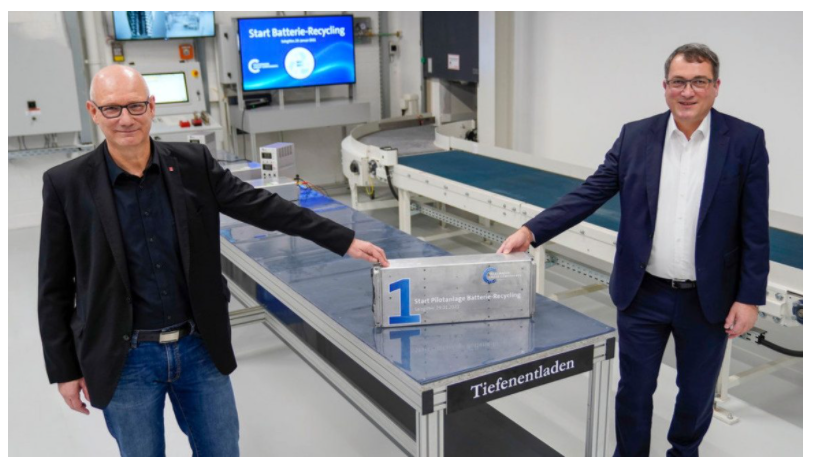German automobile major Volkswagen Group (Volkswagen Group Components) opened its first recycling plant for electric car batteries in Salzgitter.
The global auto manufacturer has been taking measures to ensure sustainable end-to-end responsibility for the entire value chain of the electric vehicle battery and hopes the Salzgitter plant will help recover valuable raw materials such as lithium, nickel, manganese, and cobalt in a closed-loop together with aluminum, copper, and plastics, achieving a recycling rate of more than 90% over the long term.
“Volkswagen Group Components has achieved a further step in its sustainable end-to-end responsibility for the battery as a key component of electric mobility,” said Thomas Schmall, Member of the Board of Management of Volkswagen AG, Technical Division, and Chairman of the Board of Management of Volkswagen Group Components.
“We are implementing the sustainable recyclable materials cycle – and play a pioneering role in the industry for a future-oriented issue with great potential for climate protection and raw material supply,” Schmall added.
A distinguishing feature of the Salzgitter plant is that it only recycles batteries that can no longer be used for other purposes. Prior to recycling, an analysis determines whether the battery is still powerful enough to be given a second life in mobile energy storage systems such as the flexible rapid charging station or the mobile charging robot, the company stated.
The company does not expect a large volume of battery returns until late 2020, and therefore, the plant has been designed to initially recycle up to 3,600 battery systems per year in its pilot phase –and it will be gradually scaled up to handle larger quantities.
According to the company, the CO2 savings from the recycling process does not involve energy-intensive smelting in a blast furnace. The used battery systems are delivered, deep discharged, and dismantled, post which, in addition to aluminum, copper, and plastics, also yields valuable “black powder”, which contains the important raw materials for batteries such as lithium, nickel, manganese, and cobalt, as well as graphite. The separation and processing of the individual substances is done by hydrometallurgical processes.
“As a consequence, essential components of old battery cells can be used to produce new cathode material,” said Mark Möller, Head of the Business Unit Technical Development & E-Mobility.
“From research, we know that recycled battery raw materials are just as efficient as new ones. In the future, we intend to support our battery cell production with the material we recover. Given that the demand for batteries and the corresponding raw materials will increase drastically, we can put every gram of recycled material to good use.”
By Shraddha Kakade
Asst. Editor, Emerging Technology News

